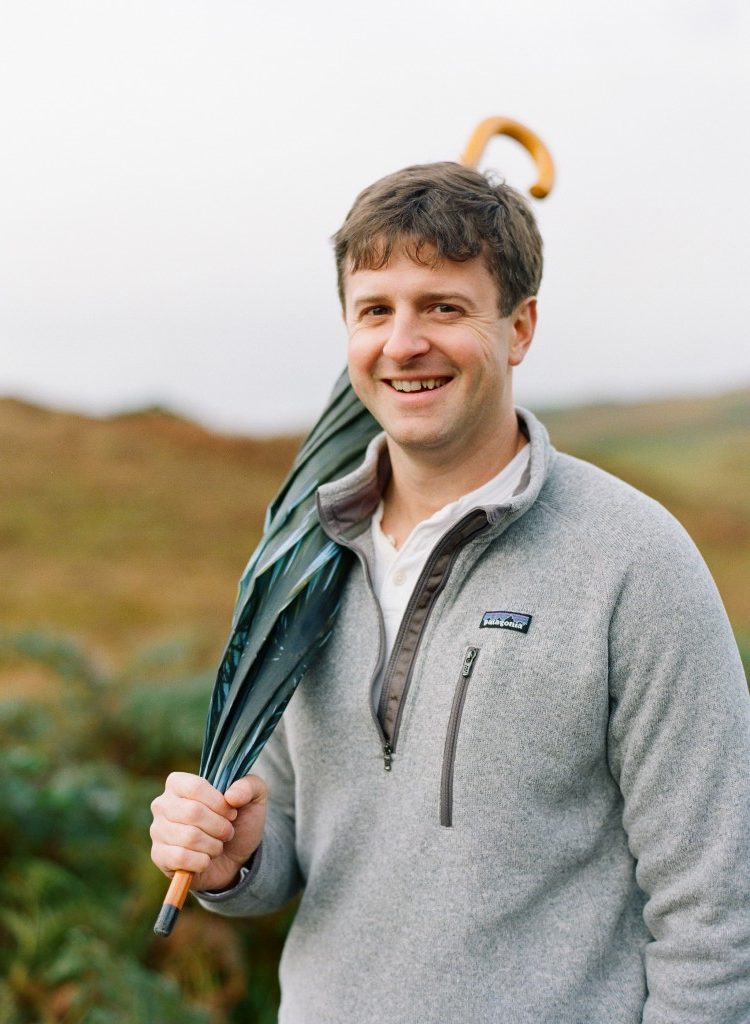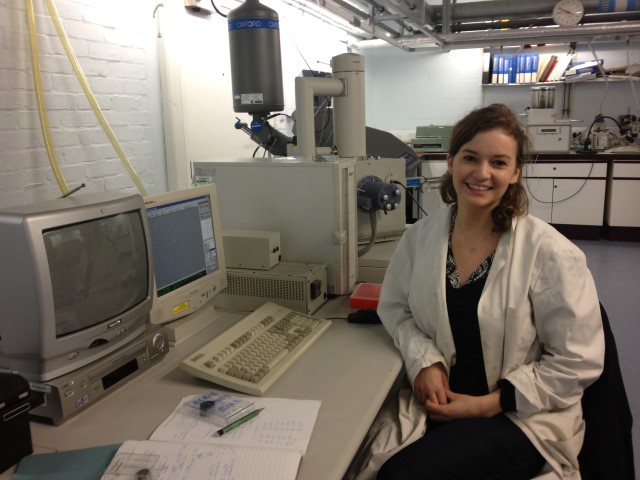Alumns Spotlight
Please enjoy reading about what a couple of our alumns from the Department of Classical Languages are doing since their graduation from Wake Forest University. You will find a wide variety of professional pursuits as we touch base with former students, and we hope this feature will aid your own thinking of the manifold possibilities that await you as you pursue this versatile and profound degree.
Reid Murphy, Class of 2005, Global Investment Firm

1) What are you doing today (professionally) and how did studying Classics prepare you for this?
I work in London, managing the office for a small, NY based financial firm that invests globally in alternative investments. Although at first blush a degree in Classics would not seem to lend itself to investing, but in fact there are many elements that I continue to draw upon from my degree everyday. For example, as with many industries, finance utilizes its own colloquial language and oftentimes does so in a way to make a simple idea sound more complex than it actually is. Studying ancient texts particularly in the original language gives you the ‘translation’ skills to come to a new ‘language’ and quickly learn how to break it down into something simpler and more straightforward. Secondly, and more importantly, much of my work at Wake Forest focused on essay writing and interpreting Latin and Greek texts. The ability to take a somewhat amorphous idea or concept that can be found in a primary source and then communicate that idea in clear concise prose for dissemination is crucial to what I do, particularly by working in a satellite office. I have been pleasantly surprised with how valuable being a concise but clear writer has been, as a surprising number of other professionals lack this skill set.
2) In your opinion, what are the benefits of studying Classics/Classical Languages?
Studying Classics gives you a unique historical perspective and helps you contextualize the modern world. I was continuously astounded by the innovation, be it literary, politically, economically, architecturally etc. that was achieved in the ancient world. It always struck me just how much of what we do nowadays is reliant upon the thoughts and innovations from over 2000 years ago. This understanding gives you a good perspective and sense of where we are today. And that sense of context is unique as it has applications in how you approach the world both professionally and in your personal life. It also makes you realize we are not nearly as clever as we think!
3) What advice do you have for current Classics students?
The advice I would offer is to focus on your writing, take time to learn how to write clearly and succinctly. The ability to communicate in this way is extremely important.

Laura M. Ware, Class of 2010, Archaeological Science
Question: What are you doing today (professionally) and how did studying Classics prepare you for this?
I am currently studying at University College London for my MSc in Technology and Analysis of Archaeological Materials (basically, archaeological science!). For my dissertation I will do compositional analyses on the stained glass window from the gothic cathedral, York Minster, and compare surface (non-destructive, non-invasive) analyses against more invasive methods for archaeological glass analysis.
While this degree is not strictly in Classical studies, my passion for Classics definitely led me here!
As an undergraduate at Wake, I studied abroad in Florence, Italy, during which time I took a class for fun on the Etruscans. I had been a Latin student in high school, and remembered how much I loved it, so I declared a second major in Classical Studies – still “just for fun”. In the summer before my senior year, I was awarded a Richter Scholarship to excavate on a pre-Roman, Iron Age necropolis and settlement near Bologna, Italy. I then decided to write my Honors thesis on Etruscan women, and by the time I graduated, my major in Classical Studies was no longer “just for fun!”
After graduating, I held an internship at the British Museum in the Greece and Rome Department, where I helped the Museum prepare for the 2012 London Olympics and for a major exhibition about Pompeii and Herculaneum, which opens this month (March 2013). Now I walk around UCL’s Institute of Archaeology in a lab coat and use scanning electron microscopes! I plan to pursue a PhD someday, and eventually work in a museum in conservation and scientific research. While I am adding science to my skill set, my preference will always be for the Greco-Roman world.
Question: In your opinion, what are the benefits of studying Classics/Classical Languages?
Studying Classics is beneficial to you as a person and also for your education and career. A deep, broad understanding of Classical myth and literature has enriched my life in many ways; all culture and art forms are all the more accessible and interesting to a Classics student. From Renaissance paintings to Harry Potter, Classical themes have permeated human expression in obvious and in more subtle ways. (Actually, detecting that continuous thread through time is one reason why I love both Classics and archaeology: humans are essentially the same across the millennia, from Achilles’ grief to Ovid’s dirty jokes.) I don’t think I have ever met someone who has studied Classics – or even taken one course, or heard one myth – and hasn’t been at least a little bit giddy about it.
A Classics education also prepares you for your career, and I can’t say it better than Jon Bolton (’73) in his interview (link?), so I’ll paraphrase his words: From pedagogy, you gain the skill of thorough preparation; from philosophy, you gain the ability to think more creatively; and from philology, you learn the art of communication. I will only add that the buzz words “ transferable skills” refers to no subject more than it refers to Classical Studies. A Classics education is the best education, and has been since the time of the ancient Greeks themselves. Back then, the aim wasn’t to get a 3.0 GPA, but to better the self in mind, body and soul: how to be a better person in all ways, from hospitality to a clever wit.
Question: What advice do you have for current Classics students?
My first advice is to all students at Wake Forest: take advantage of opportunities like the Richter Scholarship. It changed my life, made me realise I wanted the path I have now taken, and that it was achievable. I’ve always considered myself to be a good student, but not necessarily an exceptional one; however, exceptional experiences are still within your capabilities, and they can lead you in directions you never considered. Be creative when you think about your future. Love what you do and what you learn, and give your life and future the energy and attention it deserves! It is scary these days, to pursue something like Classics that doesn’t seem as ‘practical’ as business or economics, but you need to do what you love, and the rest will take care of itself: Classics will give you the tools for any career or postgraduate degree you would like to pursue.
Catherine Stancil (’89) wrote an article for the current issue of Prima. Check it out here: https://joom.ag/PKXI Her article is on pages 14-15.Sungju (SJ) Moon graduated in 2013 with a double major in Classics and Math. He recently defended his PhD in Atmospheric Science at Seoul National University. Since his dissertation is about chaos and the atmosphere, he plans to include lines 5-9 of Ovid’s Metamorphoses in his dissertation: Ante mare et terras et quod tegit omnia caelum unus erat toto naturae vultus in orbe,
quem dixere chaos: rudis indigestaque moles
nec quicquam nisi pondus iners congestaque eodem
non bene iunctarum discordia semina rerum. Here’s the translation by Allen Mandelbaum, a poet, translator and former Professor at WFU: Before the sea and lands began to be,before the sky had mantled everything,then all of nature’s face was featureless–what men call chaos: undigested mass of crude, confused, and scumbled elements,a heap of seeds that clashed, of things mismatched. Read more about our alumns here: Where Are They Now? and Spotlight on Recent Graduates and Alumns News!
